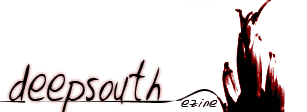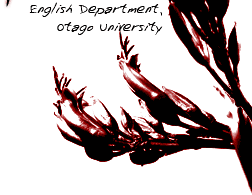Resistance to Tyranny: The Representation of Government in Recent African Poetry
by Ogaga Okuyage
African literature from the very beginning has had a bifurcating thematic approach. Its ideological planking rests on two engagements, with history as the common denominator. African literature is geared towards either the cultural crisis informed by the colonial incursion or the appraisal of post-independence. The reason for this dual artistic vocational pursuit is easy to fathom; they are the experiences the writers know at first hand. This discourse shall therefore interrogate the relationship of conflict between African governments and African poets. For the purpose of analysis, African poetry from the mid-seventies shall be assessed, not only as a measure to establish the relationship between the depraved rulers and the poets but as a means of enunciating African poetry's special relationship with history. Since African poetry continues to intersect with history on a variety of degrees, it becomes imperative that African poetry has become a reliable barometer on which Africa’s socio-political position is relayed. It is important therefore to assess the African continent through the artistic vocations of these poets.
Introduction
Most of the time written African poetry is contracted to a circumscribed space where established poetic voices like Dennis Brutus, Kofi Awoonor, Okot P’ Bitek, Birago Diop, David Diop, Kwesi Brew, Gabriel Okara, Christopher Okigbo, Wole Soyinka, John Pepper Clark-Bekederemo, Tchicaya U’ Tansi, Agostinho Neto, Antonio Jacinto, Vasco Cabral and Lenrie Peters reverberate. Critics are so used to these poets that there sometimes seems to be no poetry in Africa outside these established voices. Understandably, many scholars would prefer to explore the areas they are familiar with. However, this situation sometimes creates the notion that African poetry is stagnant and will die with this generation of poets. Although this essay does not intend to panoramically survey African poetry noting the major trends in its history, it shall subject itself to historical readings without shedding its literary temper. Through this approach, the ideological underpinnings and the thematic trajectory of recent African poetry will be easily discerned.
This essay shall, therefore, interrogate the epistemic tension in Africa’s socio-political configuration and examine the representation of the ruling class in late twentieth century African poetry. This will help, on the one hand, to explicate the relationship of conflict between poets and politicians, and, on the other, map the poetic geography of the moment. The term ‘politician’ in this context encompasses both military cabals and democratically elected individuals. Labeling military rulers as politicians may seem somewhat ambivalent, but the recent face of the military in Africa has exhibited democratic tendencies. The military has become civilized or better still, civilianized, resulting in ‘military presidents’ such as General Ibrahim Babangida. However, some military rulers in Africa sometimes subject themselves to strategic metamorphosis to meet the challenges of a globalized world. General Eyedema, Yoweri Mosevene, Jerry Rawlings and others fall under this category of rulers. African literature is socially conditioned, thus government occupies a cardinal position in any discussion of it. Dan Izevbaye remarks that “Politics has always been a major concern of poetry whether as a theme or as a conditioning factor” (43). Josphat Kubayada suggests that, “knowledge and experience, it seems, are therefore inseparable” (5). Political developments in Africa in recent years have helped to shape the consciousness of African poets.
Most contemporary poets started creating their political-cum-artistic ideas just after their nations started to gain independence. By the late 1950s, when independence began to sweep through the African continent, Africans became ecstatic with joy, erroneously construing independence as the beginning of indigenous bliss. The high hopes independence engendered were soon dashed and the entire African continent was turbaned with crisis. Thus, after an euphoric ecstasy of self rule, disillusionment set in, giving credence to what Neil Lazarus describes as Africa’s “preliminary overestimation of emacipatory potential” (50).
page 1 2 3 4 5 6

